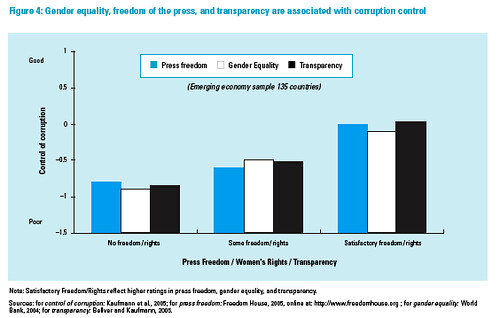Cuban Democracy|Part Three
All good blogs have guest bloggers and as such I wanted to post from a friend from Thom's Board, and he goes by BrentBozo.
I am an expert on the Cuban political system. Have read quite a bit on it.
Facts:
1) there is only one legal party in Cuba: the Communist Party (but, please don't stop reading here)
2) no one at any level of government runs as a member of the Communist Party
3) there are three tiers to the Cuban system (municial, provincial and national). Nominations at the municipal level have the Party and all civil-society mass organizations banned by law from interfereing in the nomination process; meetings to determine which are held at the neighborhood level, nominations are spontaneous and voting is by secret ballot.
For the provincial and national there is a "candidacy commission" which is comprised of civil-society groups which submit names for nomination to these bodies and, either at the provincial or national level, candidates must receive a "Si" on at least 50% of ballots in order to hold office.
4) Now for the "democracy" part: you see, people who associate democracy only with formal political institutions and the running of elections entirely miss the point of the Cuban system, although at the muni level, at least, the Cuban scores well even on those scores.
The democracy is that each sector of a municipality or each small town oversees day-to-day management of all infrastructure located within that locality. You see, socialist democracy is about citizens having input in all areas of endeavor, not just leaving it to vote for a professional political class at set intervals.
So, if you live in a neighborhood with a factory, you and your neighbors have a councilperson, representing only about 1500 people, who is answerable to you and your neighbors and is responsible for the management and staffing and working conditions in the factory (which is cool, because a lot of the neighborhood people most likely work there, or some other facility within the neighborhood).
You will find that Cuban neighborhoods are really old-fashioned in that the sense of community is something vanished from many countries. Which is one reason they have very little crime (there are other reasons, too).
As an adjunct to this, there are neighborhood councils which can be accessed for them to bring their full weight behind a complaint when it is brought to the full municipal assembly (as many problems affect more than one neighborhood).
5) And for a short summary on the national level politics: Castro is (or was) President of the Council of State (also is or was Secretary of the Communist Party and Commandante-en-Jefe of the military). Castro stands for election just like all the other members of the Assembly. The Council of State is elected out of the membership of the Assembly, with the election happening within that body.
The Council of State can rule by decree, but they then have to refer their decisions to the full Assembly for approval. Within the Council of State, many times Fidel Castro has been outvoted in positions he's taken.
A usual criticism is that the full Assembly meets only twice a year for a few days, so people assume it's a rubber-stamp. True, their votes are usually unanimous, but the Cuban gov't will tell you that's because there's an attempt to reach consensus and that controversial bills are rewritten before the voting begins (so, I admit, this area is suspect, but, then again, I say the real, original democracy is at the local level, although even the national system does have its advantages, like no need to raise money in order to stand for election).
The National assembly does have committees meeting year-round which hold open hearings.
6) I don't know as much about the provincial councils- assume they function vis-a-vis the national as the municipal does the provincial. The provincial membership is elected in the same way as the national (as has been mentioned).
7) In the early days of the Revolution, polling showed 90% support for Castro's government and 60% not even wanting liberal-style, traditional elections, as the Cuban process had been often sullied in the past. This is the idea behind socialist democracy.
There is limitation on free expression. The idea is that this is a socialist state and, within that parameter, expression can be used as to the best means to fine-tune socialism. So, yes, Cuba falls short in terms of criteria of liberal democracy, but the U.S. has very little of the socialist brand of democracy.
I think that pretty much summed it what I also said in Cuban Democracy? and Cuban Democracy|Part Two. I still would not want to live under such a regime but at I think we now have at least a better understanding of their grass roots form of democracy. Will greater freedoms including freedom of travel break this rhizome structures?
Also, I strongly think they need to increase the level of democracy at all levels including of course the President.
P.S.: Brent said, Feel free to use whatever you want, although I'd say authors D.L. Raby and Peter Roman express the ideas much better than I.


